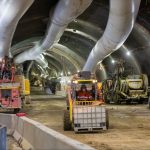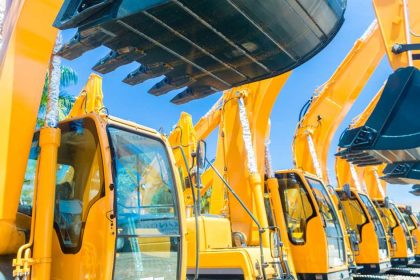Experts say building more trust in community-organsised renewable energy projects could be the missing ingredient towards Australia reaching its net zero carbon targets.
Community groups across Australia will gather in Sydney this week to showcase communities’ role in the nation’s clean energy transition.
This year’s Community Energy Congress will see representatives from communities, government, business, and infrastructure providers discuss the speed of transition, values and outcomes that communities want in the energy transition.
Rewiring Australia founder Dr Saul Griffith, a keynote speaker at the event, says Australia’s clean energy transition depends as much on improving community organisation and trust as funding and building them.
“To make the clean energy transition we don’t just need new physical infrastructure, but new ways of leading and organising at a community level,” Dr Griffith said.
“I’m constantly inspired by the passion and innovation of community groups driving change in the climate and energy space. It’s households that have the most to benefit from an electrified future – more local jobs, healthier streets and cheaper energy bills.”
What are community energy projects?
Community energy refers to the many ways groups organise to speed up investment in renewable energy and demonstrate a better energy future.
This can range from providing information on the benefits of household electrification to the development, production, distribution, sale and purchase of energy assets and their output.
Last year, communities raised nearly $87m to fund their renewable energy infrastructure rather than wait on government initiatives.
Most volunteer-driven projects, including solar power, battery storage, energy efficiency, electric cars, microgrids, and wind turbines, have been primarily financed with minimal government assistance.
Collectively, they produced 19,000 MWh of clean energy in 2023, preventing the equivalent of 14,000 tonnes of carbon dioxide – the same as removing nearly 8,000 cars.
Public trust as important as tech
Andrew Bray, National Director of RE-Alliance, an independent community-based organisation working with regional renewable energy projects, echoed the advice to improve community energy project communication within communities.
“State and Federal governments are spending billions to attract investment in renewable energy, but a financial investment in building trust in the process is just as important,” Mr Bray said.
Bray said that for local communities to get the most out of community energy projects, they needed better engagement opportunities, including access to reliable information and data.
“We’d like to see governments take a three-pronged approach here. Communicate more actively about the transition, use the CSIRO as a trusted source of information and invest in Local Energy Hubs in Renewable Energy Zones across Australia,” he said.
Community energy hubs could boost local support
Mr Bray called for an introduction of community project ‘show-homes’ during consultation and construction of renewable energy projects, where residents could address concerns and discover the need for and efficiency of the planned project.
“Imagine if you could walk into a one-stop shop to understand why new energy infrastructure was needed in your community and then have all the information you need in one place to work out how your community could benefit?”
“These local energy hubs could bring communities into the conversation from the beginning – which is crucial.”
The congress is organised by the Coalition for Community Energy (C4CE), the peak body of Australia’s growing community energy sector. It will be held today and tomorrow at the International Convention Centre in Sydney.
Tickets for the Community Energy Congress are available now via Humanitix.







